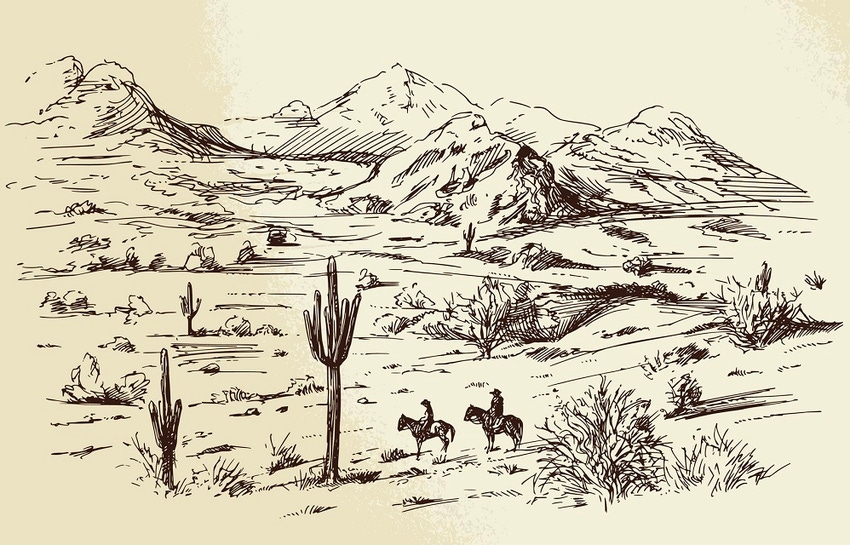
When I talked to my friend Ray Bannister at Wibaux, Montana, in mid July, he said he had received less than 4.5 inches of total moisture in 2017.
He was not considering destocking since he has grass and hay enough to go another 14 to 18 months.
That's a success story in the droughty Northern Plains this year and makes me think it might be a good time to review some of his philosophies. Banister invented the term "boom and bust" for grazing management and natural principles in general. However, he also blends those with animal behavioral principles in his overall management.
I’ll take a shot at repeating discipline principles that he has shared with me in the past few years.
Bannister defines his axioms of discipline as treatments that produce self-control, orderliness and efficiency.
Pain is the fastest way to a learning experience. A child seldom touches a hot stove more than one time.
Speed and reaction in discipline must be immediate and not result in wrath (long term dislike or hate). The personality and demeanor of the animal must be fit into the discipline. A border collie and an Australian shepherd are two different personality types and must be disciplined as such.
Reward must be consistent and immediately follow the discipline. The cattle need a bite of some good stuff after being moved.
Consistency of discipline is a must, in that random discipline leads to neurosis. This should be self-explanatory.
Short and simple discipline is a must. Comparatively, there are only 10 commandments and Jesus said all could be summed up in two great commandments.
Instant forgiveness must immediately follow discipline. When it is over, it needs to be over.
Raise or “jack-up” the discipline until the desired result is attained. Criminal activity stops when the risk becomes too high.
Discipline needs to be public. I am not talking about the sale barn. The truth is that less than 10% of cattle ever check or test an electric fence. The rest watch and see what happens; another plus in the favor of high-density grazing.
Discipline is non-effective when applied in partnerships of any kind. Marriage is a good example.
Ray Bannister and I both advocate and practice low-stress handling as taught by the late Bud Williams. These principles of discipline fit the program.
Animal behavior, like our behavior, is a function of consequences. About 10% of all populations must be disciplined and brought under control due to their outlaw nature. They are smart and innovative but must be disciplined. Culling is permanent discipline.
Chances are we all own some of these animals, and have some in our family. A regular review of the axioms might , be positive.
Thank you, Ray.
About the Author(s)
You May Also Like






